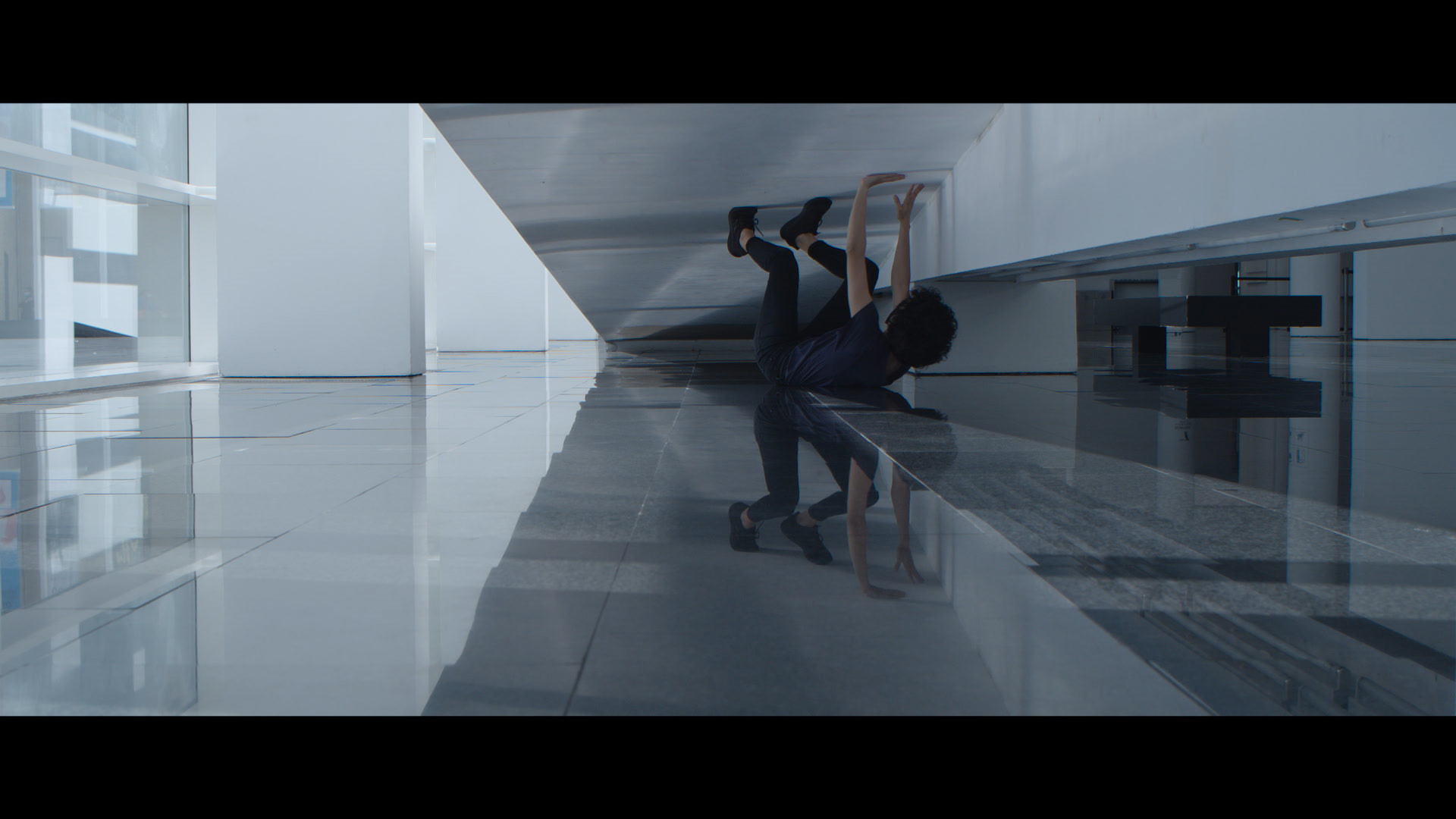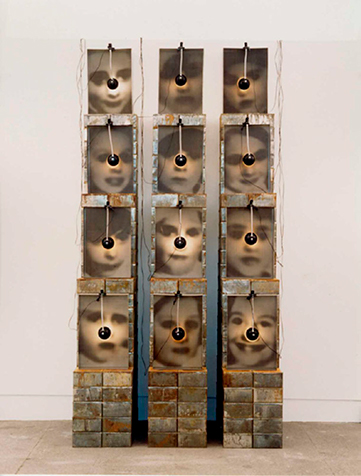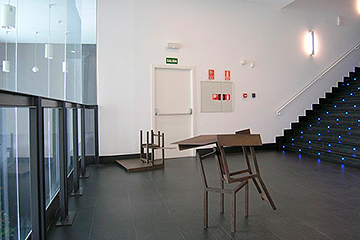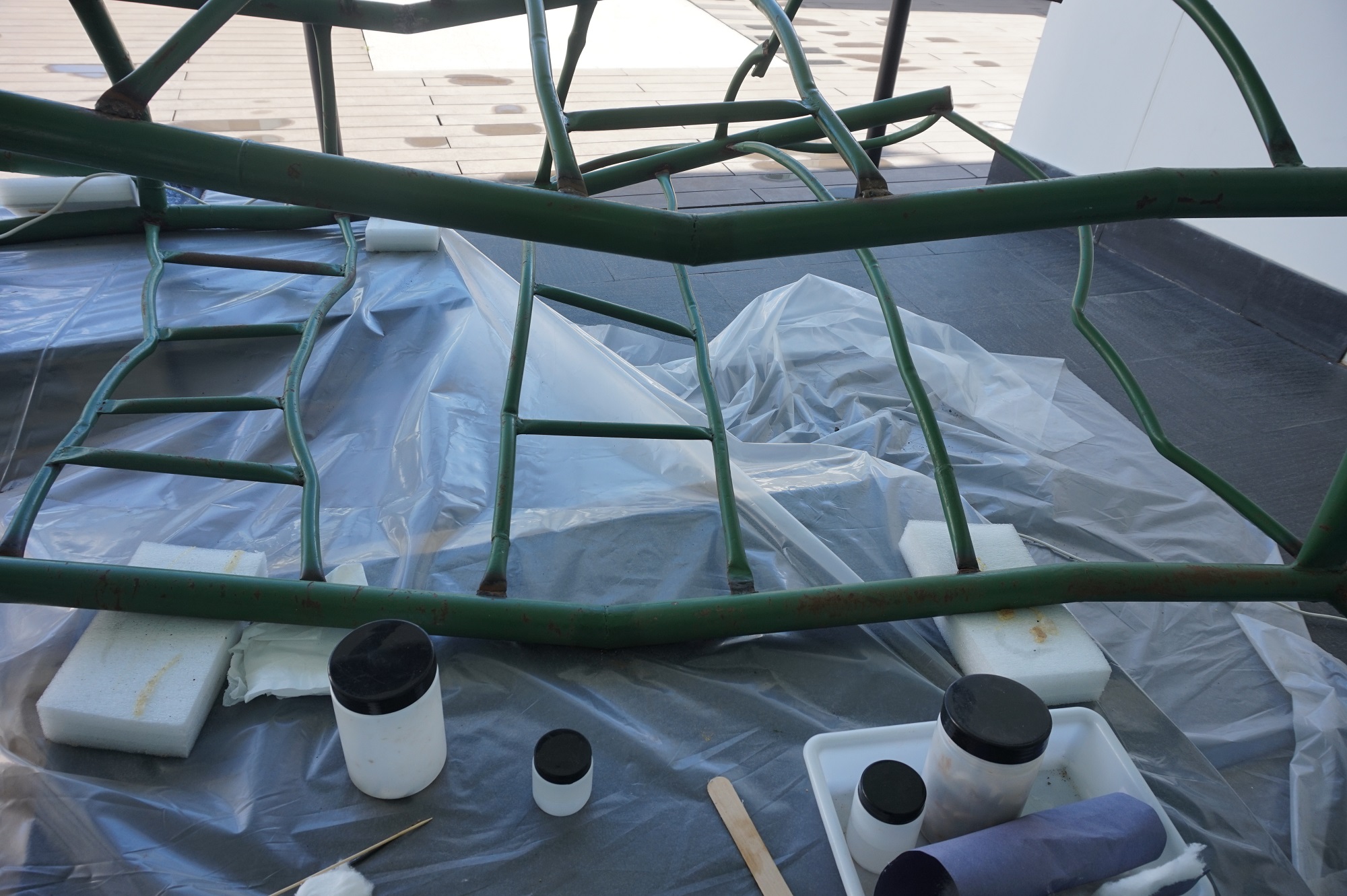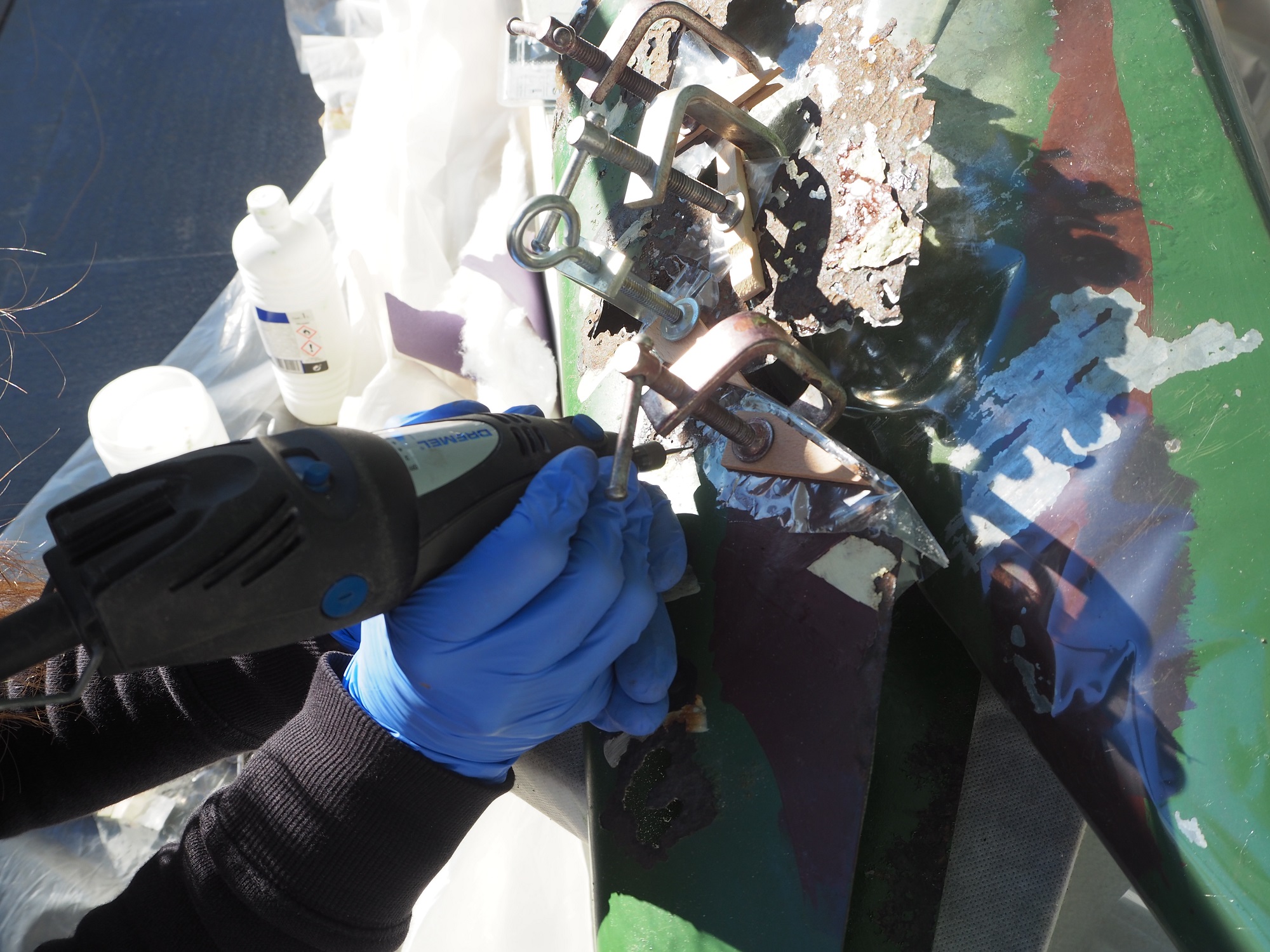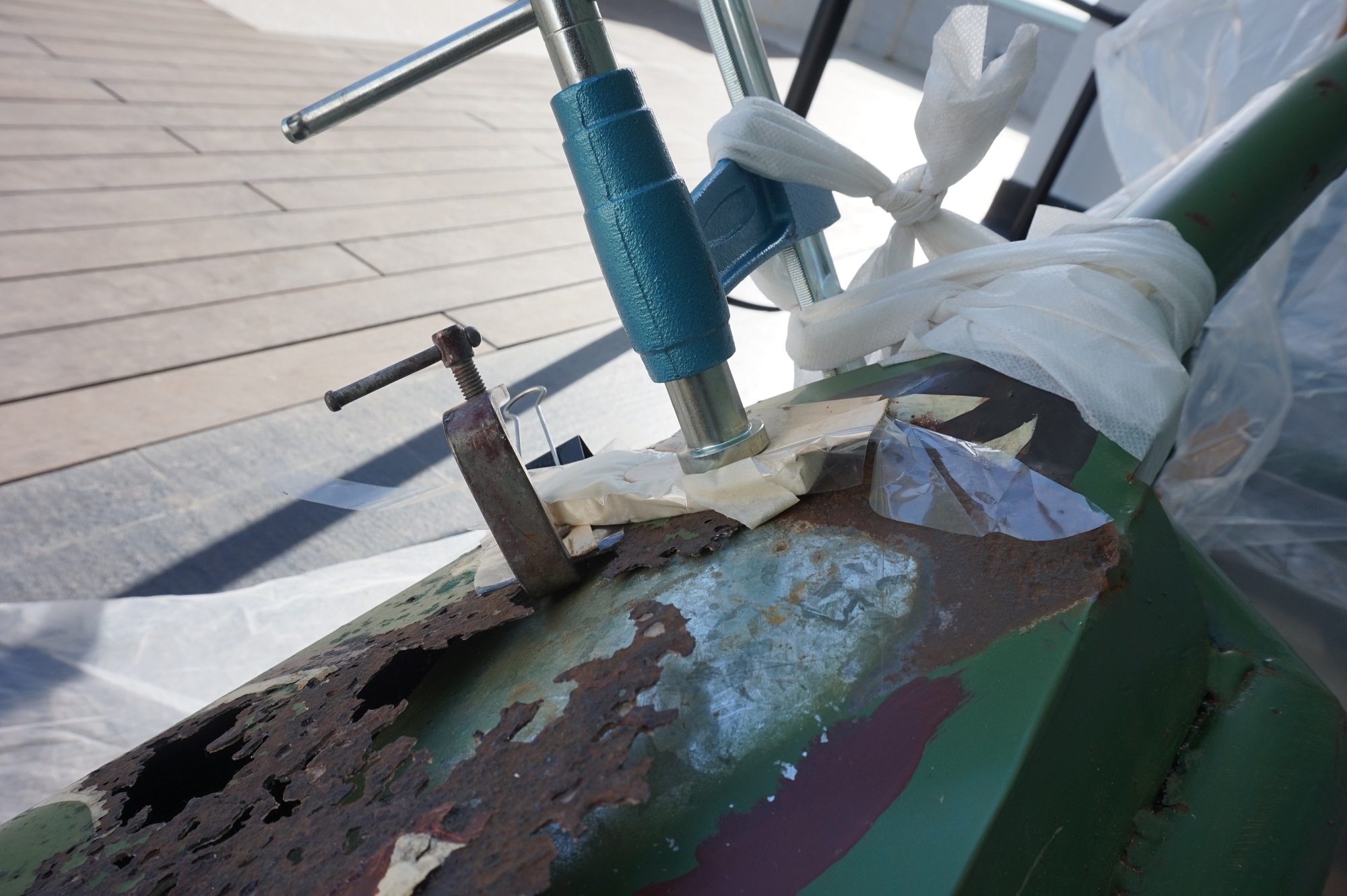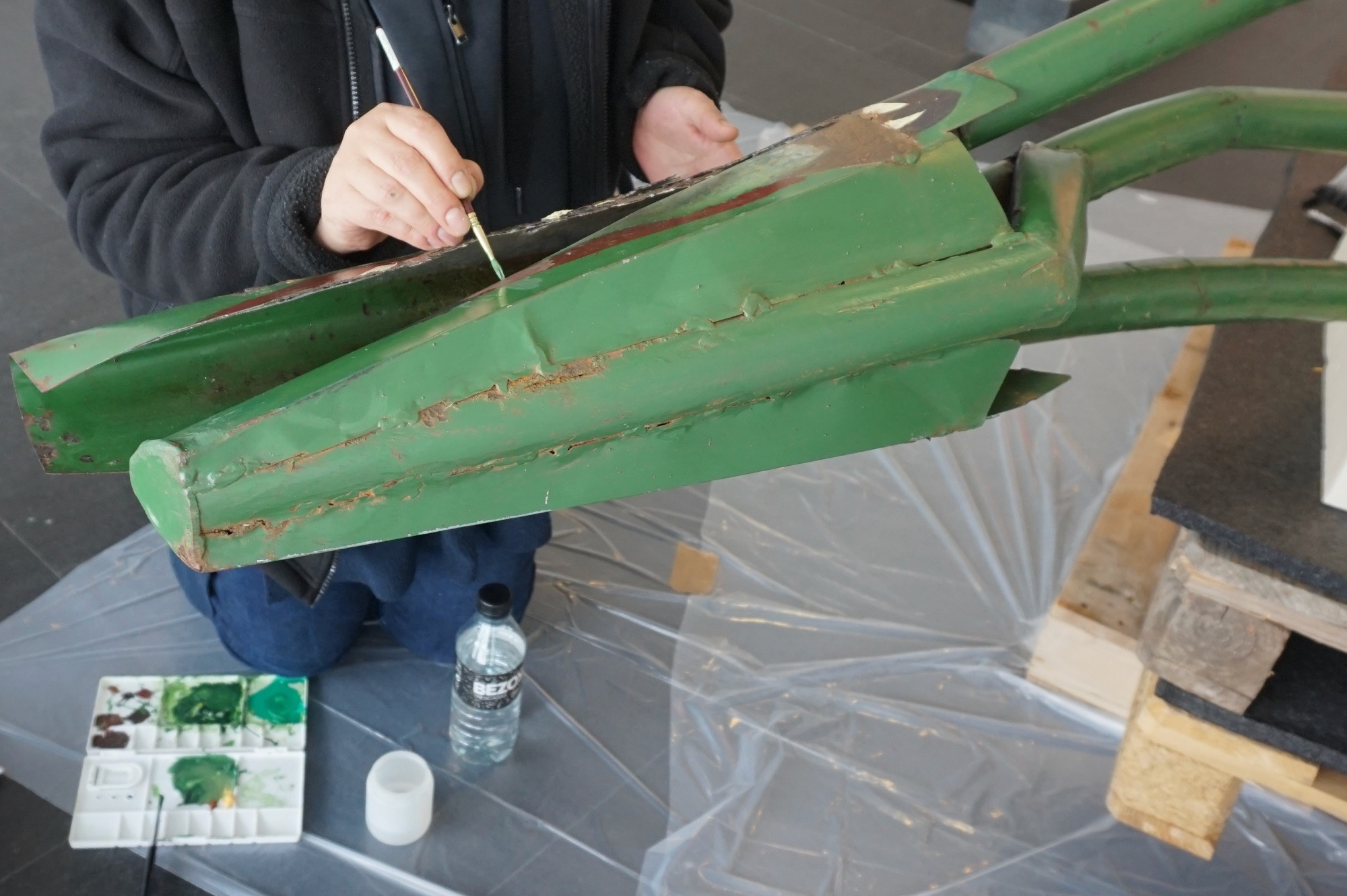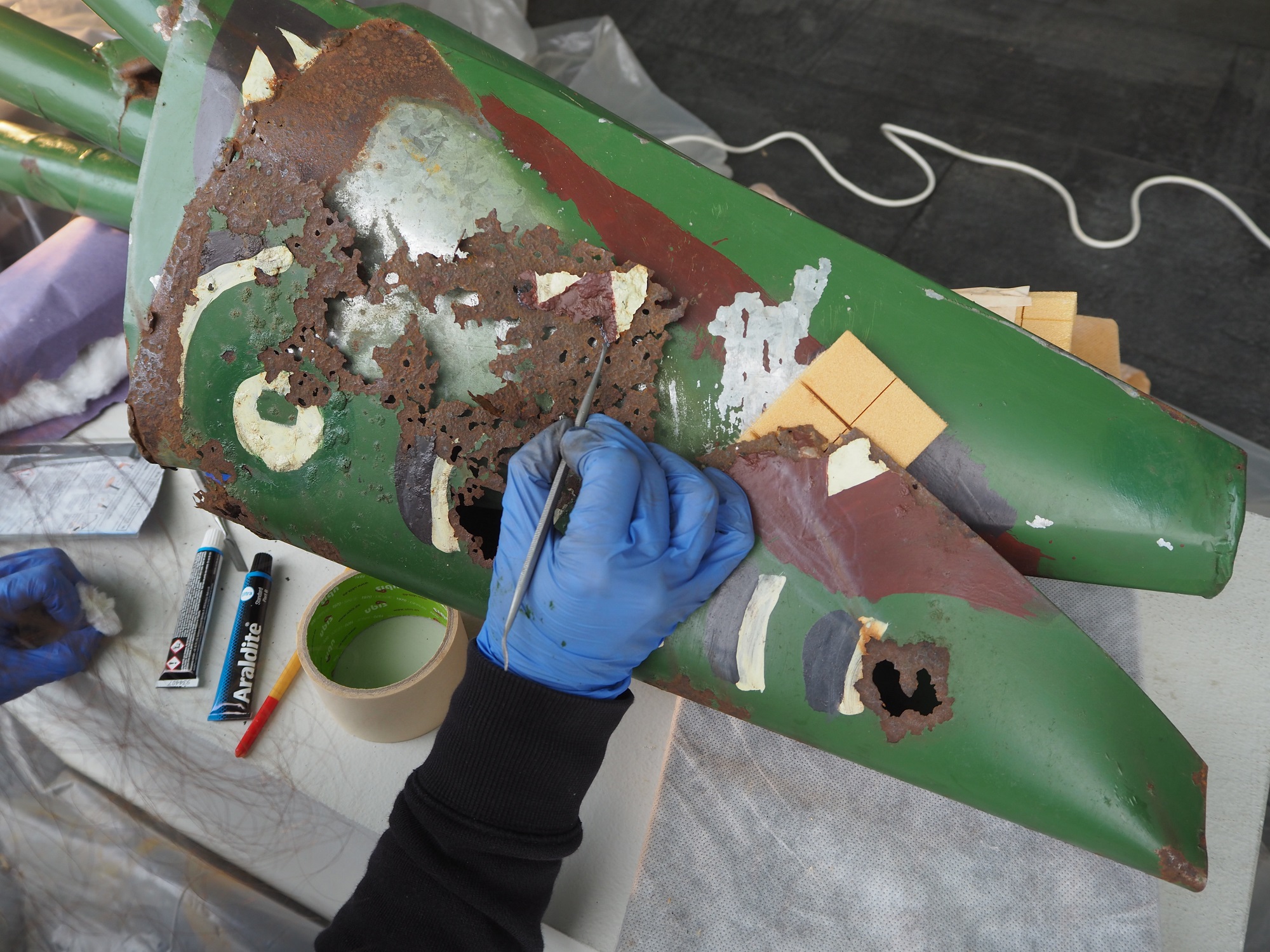REASON FOR INTERVENTION
The decision to restore this work was taken following an application for the loan of the work received from Centre Pompidou in Paris for the retrospective exhibition CHRISTIAN BOLTANSKI. FAIRE SON TEMPS (13 November 2019 - 16 March 2020). The installation comprises a total of 360 elements in different materials and formats. The primary reason for this intervention was the notable deterioration produced by the corrosion of the metallic elements of the work. The very thin tinplate used for the boxes had reacted to the humidity, giving rise to corrosion which also affected the contents inside the boxes.
STATE OF CONSERVATION
The state of conservation of the work is below optimum both from an aesthetic as well as a structural viewpoint due to the advance state of oxidation of the boxes. The elements in the installation are as follows:
336 metal boxes
Affected by active oxidation, remains of adhesive, small shards of metal, stains, erosion, deformations and surface dirt.
The materials contained inside the boxes:
_ Fabric: the corrosion of the boxes has affected the inside and impregnated the fabrics and stained them with rust. Abundant dirt, deformations, breakages, signs of decomposition and bio-deterioration.
_ Cellulose support: general dirt, stains produced by damp and corrosion of metal. Oxidation of the material, yellowing, acidity, fragility. Biological contamination. Damage caused by incorrect storage such as deformation, creases, folds, breakage, small losses, exfoliation of corners. Traces of different kinds of adhesive tape, namely: sellotape, masking tape, gummed paper. Alterations of dyes: fading, colour bleeding.
_ Photographs: exfoliation in corners. Folds and creases. Corrugation, deformations, abrasions, inscriptions and stains.
12 boxes with photos with metal mesh
Montage of black and white photographs adhered to cardboard with adhesive, in turn adhered inside the box at six points with double-sided tape.
Dust and dirt had accumulated on the photographs as well as the boxes and metal mesh. The meshes and the boxes have active points of oxidation and some meshes have small breakages, erosion, deformations and traces of adhesive tapes. The wires holding the meshes are oxidized with some loss or breakage.
12 flexo-type lamps
Defective wiring, erosion caused by handling, small loss of paint, traces of adhesives, and general dirt.
TREATMENT UNDERTAKEN
Description of the different processes according to material:
Metal
Hand cleaning of all the boxes using steel wool of varying grades depending on the layer to be removed (000 and 0000), and a mixture of acetic acid (70%) with linseed oil (10%) and 96º alcohol (20%).
Brass brushes were used in areas with greater amounts of rust.
The remains of labels were removed with cotton swabs and 100% acetone dissolvent, and then finished mechanically with scalpels.
Treatment to protect the boxes in order to prevent oxidation with a mixture of 2% Paraloid B72 resin in acetone applied by brush.
Revision of system for mounting the 12 metallic meshes. Removal of rusted wires and replacement by stainless steel wires.
Fabric
Gentle micro-vacuuming and application of a biocidal treatment in spray: biotin in distilled water (1/3).
Followed by immersion in a mixture of 50% sodium bicarbonate and citric acid in distilled water, and the application of a specific reductive bleaching agent with final rinsing. Drying with driers and weights.
Cellulose support
Surface cleaning with Japanese brushes, elimination of deformations, damp control and weights, tears sutured with methyl-cellulose and Japanese paper. Dry cleaning with make-up sponges and isolated treatment of stains.
Photographs
Gentle vacuuming and Japanese brushes.
Flexo lamps
Surface cleaning, placement of clamps and replacement of bulbs with LEDs.
Preventive conservation rules applied, coding of all pieces and creation of new more appropriate packaging.
Finally, authorization and acceptance on behalf of the artist was sought at all times for the intervention undertaken, agreeing on the maintenance or conservation of the original aesthetic appearance and a respect for the material integrity of the work.
Entrance
The decision to restore this work was taken following an application for the loan of the work received from Centre Pompidou in Paris for the retrospective exhibition CHRISTIAN BOLTANSKI. FAIRE SON TEMPS (13 November 2019 - 16 March 2020). The installation comprises a total of 360 elements in different materials and formats.


